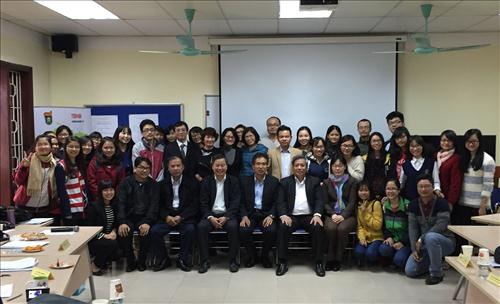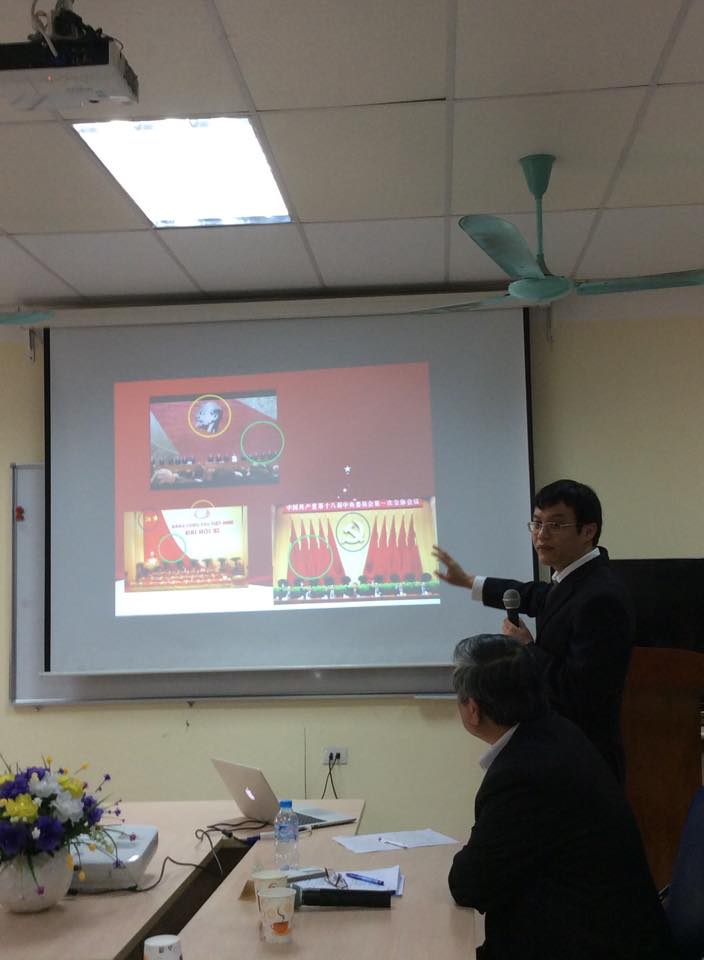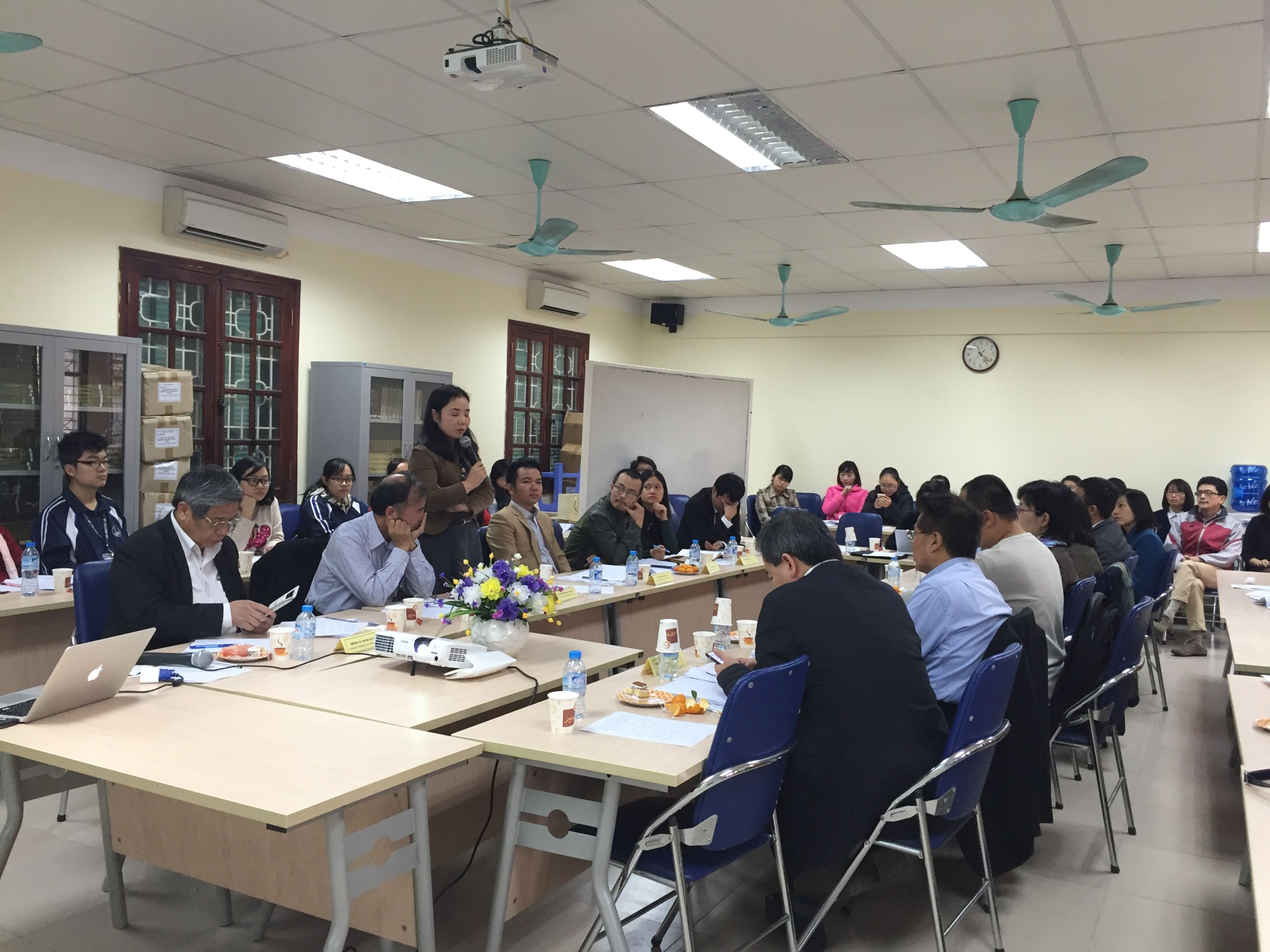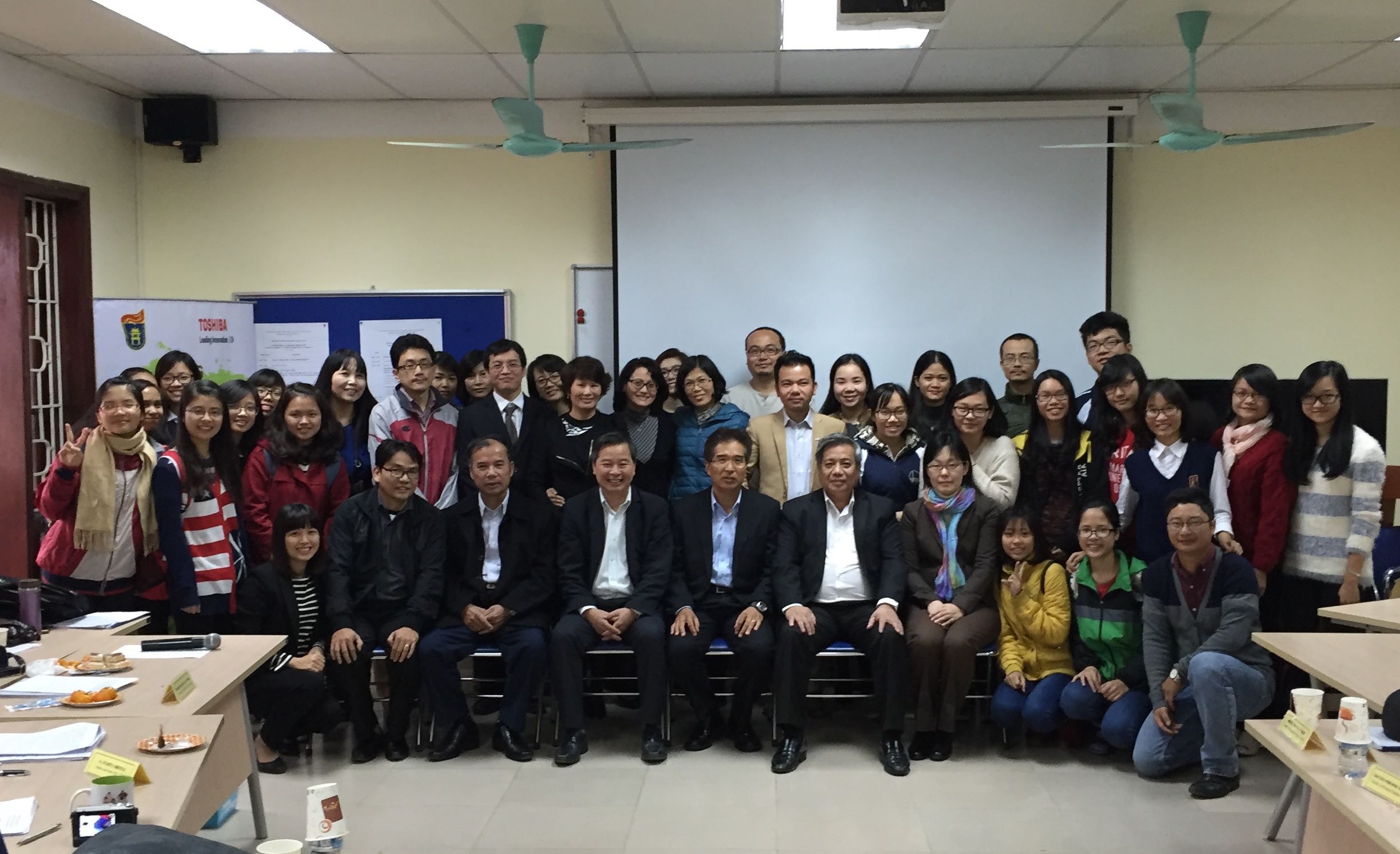
The seminar is a professional discussion revolving around the main reports of two young researchers from the Department of Japanese Studies, Faculty of Oriental Studies.
Presentation by MSc. Pham Le Huy (Department of Japanese Studies, Faculty of Oriental Studies) on research on "Design ideas for the 7th century Japanese capital and the Ly dynasty's Thang Long capital - seen from the bell hanging and coffin placement in the central area”. The report is completed on the basis of the theory of regional studies, with specific operations of comparative and intertextual research. In which the author's key argument is that the ideal of the classical ruling class has been realized and materialized through the planning of the plan, the arrangement of architectural units showing a "cultural transplant" according to the Confucian model with the aim of increasing power and symbolizing the prosperity of a dynasty.

MSc. Pham Le Huy presented a paper at the seminar
Commenting on the report, Dr. Tran Trong Duong (Institute of Han Nom Studies) highly appreciated the author's argument as well as the valuable developments in this research. In terms of methodology, the author skillfully used cultural comparison operations. In particular, the article considers Chinese Confucian culture existing in the East Asian region as a cultural foundation, a culturally constructive region. Therefore, the models of Chinese capitals in history, in theory, will be considered first; those models are considered as models/prototypes for the same-culture states such as Japan and Vietnam to refer to. Dr. Tran Trong Duong also gave suggestions to the author in continuing to research the topic. He believes that if this research is expanded chronologically in both Japan and Vietnam, it will contribute to building a general view of the ideology of espionage and the system of posting literature in East Asian society in the Middle Ages. And if possible, the author should expand the scope of interest and the subject of investigation to the scope of historical sociology. That is, to study the process of applying and implementing the function of "publishing literature" of feudal dynasties, to see how medieval society and feudal dynasties used this system as a means of expressing the interaction of power and community interests.
The report of Dr. Nguyen Phuong Thuy (Department of Japanese Studies) focuses on“Compare the regimesJapan's Local Collective Trademark and Geographical Indication System”. The report outlines the background of the birth as well as the protection systems of local collective trademarks and geographical indications from: definitions, conditions, subjects, objects, etc. From there, the author has made comparative comments on the two protection systems above.

Dr. Nguyen Phuong discussed with researchers at the seminar
Dr. Vu Tuan Hung (Vietnam Academy of Social Sciences) commented that the consideration of issues related to intellectual property protection in general and the protection of local collective trademarks or geographical indications mentioned in the article “Comparison of local collective trademark regimes and geographical indication regimes of Japan” by Dr. Nguyen Phuong Thuy is useful and very practical. It will add color to the research on Japan in Vietnam. This is especially meaningful when Vietnam and Japan officially become 2 of 12 members of the Trans-Pacific Strategic Economic Partnership Agreement (TPP), the cooperation and strategic partnership between Vietnam and Japan will open up many special opportunities in building and developing the intellectual property protection system associated with the fields of agriculture, forestry and fisheries. Dr. Vu Tuan Hung also said that the contents in the article have partly reflected the contents to compare the local collective trademark regime and the geographical indication regime, but have not yet shown to be a set of balanced criteria and should add some factors such as Type of legal document, Protection period, registration procedures... to clarify the contents of the two above regimes.
The two presentations received many comments and shared opinions from the large number of attendees!

Delegates attending the seminar took souvenir photos with the reporter
The final discussion is scheduled to be held on January 23, 2016.
Author:Nguyen Thi Thu Huong
Newer news
Older news